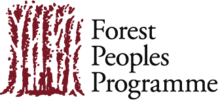
Living Data 2025: resources on mapping and monitoring
This page contains resources on community-based mapping and monitoring from Forest Peoples Programme and our partners. Across various collaborations and initiatives, we innovate and implement mapping, monitoring and management tools to aid Indigenous Peoples’ and local communities’ territorial governance.
Publications
Local Biodiversity Outlooks
Local Biodiversity Outlooks is a joint initiative of the Centres of Distinction on Indigenous and Local Knowledge, the International Indigenous Forum on Biodiversity, the Indigenous Women’s Biodiversity Network and the Forest Peoples Programme. Bringing together case studies from across the world, the website and reports highlight the contributions of Indigenous Peoples and local communities to the Convention on Biological Diversity.
- Read the second edition in English, Spanish or French
- Read the summary in English, Spanish, French, Russian, Mandarin or Arabic
- Explore case studies on the LBO website
Conservation and human rights: an introduction
Produced by the University of Oxford’s Interdisciplinary Centre for Conservation Science and Forest Peoples Programme, this resource provides guidance on human rights issues to conservation professionals. Sections 3.7 and 3.8 focus on participatory mapping and monitoring.
Introduction to community-based environmental monitoring
Created as part of Transformative Pathways, a joint initiative on conservation and sustainable use by Indigenous organisations in Asia, Africa and the Americas, this resource provides practical guidance for local organisations working with communities which are facilitating Indigenous Peoples and local communities to design and implement environmental and biodiversity monitoring on their lands.
Introducing the Indigenous Navigator’s Human Rights and Environmental Due Diligence Module
As Indigenous communities continue to face human rights and environmental harms, especially in the context of business activities, effective monitoring of their rights is critical. This publication introduces Human Rights and Environmental Due Diligence (HREDD) surveys that respond to the urgent need for Indigenous communities to monitor and document business-related human rights and environmental harms.
- Read the publication in English

Briefings
Building from the ground up: Opportunities to scale locally-led monitoring of the social impacts of conservation
Part of Forest Peoples Programme’s briefing series Transforming Conservation: from conflict to justice, Building from the ground up presents the results of a global scoping exercise to identify and characterise monitoring initiatives led by or partnered with Indigenous Peoples and local communities to capture social dimensions of conservation.
A brief introduction to the Indigenous Navigator
The Indigenous Navigator is a global tool for Indigenous Peoples to assert their rights and advance their self-determined development. This briefing explains why it’s needed and how it works.
The Indigenous Navigator Biodiversity Module
The new global agreement on biodiversity, the Kunming-Montreal Global Biodiversity Framework (KMGBF), acknowledges the crucial role of Indigenous peoples, incorporates a human-rights based approach and promotes the use of community-based monitoring and information systems. This briefing outlines the Indigenous Navigator’s ‘add-on’ Biodiversity Module (surveys) to expand its existing tools.
Towards COP16 Info Note 4: Traditional Knowledge Indicators
This information note explains what the traditional knowledge indicators are, how they are relevant to the Global Biodiversity Framework, the role of Indigenous Peoples and local communities in monitoring them, and how they are being included in the GBF Monitoring Framework.

Films
How the Ogiek of Kenya are using mapping to advocate for their land rights
The Ogiek peoples have been victim to multiple evictions from their ancestral lands that were carried out in the name of conservation. This film shows how, through community mapping projects, the Ogiek have gathered data that proves that their land belongs to them, showing that they are the best-placed to conserve and sustainably use the animal and plant biodiversity on their land.
- Watch the film in English, Spanish or French
- Read an article in Oryx about the conditions that enable the Ogiek to sustain and be sustained by their lands in English
Mapping and monitoring on indigenous territories
An introductory film about participatory biodiversity mapping and monitoring, designed to raise community awareness of the history and current context of mapping and monitoring, as well as to share useful information on how best to map and monitor in practice.
- Watch the film in English, Spanish, Thai, Swahili or Bahasa Indonesia
About Forest Peoples Programme
Forest Peoples Programme (FPP) is an international NGO that has been working with Indigenous peoples and forest peoples since 1990. After more than 30 years, FPP works in 18 countries across South and Central America, Africa, and Southeast Asia, with around 50 partner organisations based in the tropical forest belt. We work directly and in solidarity with communities and peoples, supporting them to secure their rights to their traditional lands, territories, and resources, protect their forests and ways of life, and choose their own futures.
